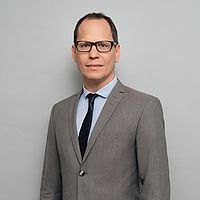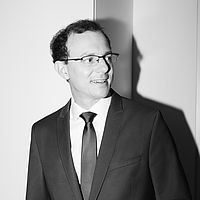Press release dated August 10, 2021
Previously, Nintendo’s patent EP 1 854 518 had already been successfully asserted against Bigben Interactive GmbH. In an opposition filed against the patent before the European Patent Office, the claims had been limited in first instance proceedings, but, on appeal, the opposition had been fully rejected. A subsequent nullity action against the German part of the patent saw remarkably similar events: While the Federal Patent Court demanded the same claim limitation as the EPO opposition division, the claims as granted were restored on appeal by the Federal Court of Justice (X ZR 71/19).
The patent is directed to ergonomic aspects combined with sensor technology including a camera and an accelerometer, as are characteristic for the Wii Remote, the primary controller for the popular Wii console from Nintendo that was released in 2006. In 2010, Nintendo asserted the patent against Bigben Interactive GmbH, the German affiliate of a France-based manufacturer of video games and gaming accessories (now Nacon), for the distribution of a controller which was compatible with the Wii console. The Mannheim Regional Court found the patent infringed and issued an injunction with its judgment in 2011 (Nintendo wins before the Mannheim District Court | BARDEHLE PAGENBERG) which was confirmed by the Karlsruhe Court of Appeal in 2017 (6 U 87/11).
Bigben, and other distributors of third-party controllers for the Wii console from Nintendo, tried to invalidate the patent in opposition proceedings before the EPO. In 2012, the Opposition Division found that the claims as granted comprised added subject-matter in the form of an “intermediate generalization”. The controller for the Wii console comprises an infrared camera which captures images of infrared LEDs in the sensor bar of the console. The LEDs are reflected as high intensity portions in the images captured by the camera, which are used by the Wii console for calculating the orientation of the controller with respect to the sensor bar. The patent claims as granted require that the controller determines the position of the high intensity portions in the images, but the Opposition Division was of the opinion that they need to specify that the area (size) of the high intensity portions is determined as well. In contrast, in a decision of 2016 (T 1386/12), the Board of Appeal saw no functional or structural relationship between the determination of the position and the determination of the area and found that the claims as granted did not comprise added matter.
In a second attempt to invalidate the patent, Bigben filed a nullity action against its German part with the Federal Patent Court. Like the Opposition Division, the Federal Patent Court found, in 2019, that without the feature of area determination, the claims comprise added matter in contravention of EPC A. 123(2). However, on appeal, with its decision of August 3, 2021 (X ZR 71/19), the Federal Court of Justice concurred with the EPO Board of Appeal and restored the claim scope as originally granted.
The Federal Court of Justice also found that the value-in-dispute, which determines the court fees and reimbursable attorney fees, needs to be increased to reflect the amount of damages requested by Nintendo from Bigben in proceedings pending before the Mannheim Regional Court, rather than taking guidance from the value-in-dispute in the infringement (liability) proceedings. In Germany, not only infringement and validity of a patent are determined in separate proceedings, but also the amount of damages, which — if not settled — are determined in third proceedings, after the finding of liability. This is one of the rare cases where damages proceedings were already pending before a decision on validity was rendered.
Bigben’s distribution of remote controllers for the Wii console around the year 2010 sparked a number of lawsuits between the parties in Germany and elsewhere, Nintendo asserting infringement of patents, utility models, and designs related to accessories for the Wii console. Some of these lawsuits are still pending today, including cases about design infringement, see also BARDEHLE PAGENBERG victorious in design litigation as German Federal Supreme Court sides with Nintendo against Bigben | BARDEHLE PAGENBERG.
Representatives of NINTENDO Co., Ltd.: BARDEHLE PAGENBERG (Munich):
Dr. Christof Karl (Attorney-at-Law, Patent Attorney)
Dr. Patrick Heckeler (Patent Attorney)
Representatives of Bigben Interactive GmbH: Uexküll & Stolberg (Hamburg):
Dr. Johannes Ahme (Patent Attorney)
Martin Jacob (Patent Attorney)
FPS Fritze Wicke Seelig (Hamburg):
Christian Hertz-Eichenrode (Attorney-at-Law)
Dr. Frank Hegmann (Attorney-at-Law)
Federal Court of Justice, 10th Senate
Dr. Klaus Bacher (Presiding Judge at the Federal Court of Justice)
Dr. Hermann Deichfuß (Judge at the Federal Court of Justice)
Ulrike Picker (Judge at the Federal Court of Justice)
Dr. Patricia Rombach (Judge at the Federal Court of Justice)
Dr. Hartmut Rensen (Judge at the Federal Court of Justice)


